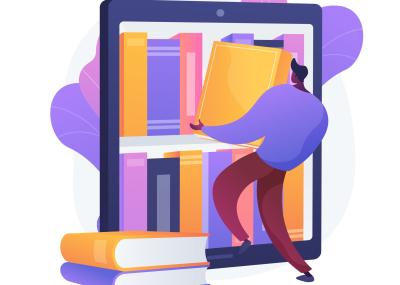If you’re like most programming librarians, there’s a good chance that you’ve spent a lot more time online in the past year. As COVID sent library workers scrambling to do their jobs in a little- or no-contact environment, many of us have faced a steep learning curve.
So, how is that going for you? Could you have benefited from some training ahead of time?

The need for a programming curriculum
There is a reason we’re asking this now. In January 2021, a task force comprising library workers and MLIS instructors — including the authors of this blog post — gathered virtually to explore an idea: the creation of a programming curriculum for library students and practitioners.
The need for such a curriculum is clear: Previous ALA research has shown that programming librarians tend to develop their skillset through on-the-job training or life skills rather than formal training. Some library workers surveyed explained that they learned programming skills by working in retail, doing theater or planning their children’s birthday parties. Although programming is a core component of many libraries, few MLIS programs offer programming courses, and those that are offered are not required for graduation.
In the National Impact of Library Public Programs Assessment (NILPPA), ALA and researchers at Knology identified nine Core Competencies that lead to successful public library programming. Those Core Programming Competencies were defined as: Organizational Skills, Knowledge of the Community, Interpersonal Skills, Event Planning, Creativity, Content Knowledge, Outreach and Marketing, Financial Skills and Evaluation.
COVID-19 and going digital
Those competencies were identified in early 2019. Then, of course, the pandemic struck, compelling many library workers to re-think their programming options.
While many library workers are known to be flexible, adaptable, and able to create meaningful programs that reflect their knowledge of the communities (and needs thereof) they serve, it took a crisis response for most programming librarians to incorporate digital programs into their services. This process emphasized another ongoing crisis: the digital divide. Are digital programs failing to engage crucial community audiences due to a lack of accessibility? How do library workers respond to that?
Now, as our task force gathered — in a changed world — to discuss a programming curriculum, the role of digital competence trumpeted its elephant-in-the-room status.
Where discussion centered around some of the benefits and drawbacks to digital programming, or whether digital programming is here to stay, there was a consensus that digital aspects are interwoven throughout the existing nine Core Competencies of programming librarians. There are also some aspects of the digital skillset that may stand out as a tenth core competency, such as proficiency with the technology being used, understanding and addressing the digital divide and digital inaccessibility, and recognizing different communication needs for a digital format, to identify a few.
Questions and feedback
Task force members agreed that digital programming, in some format, is probably here to stay. If that is the case, educating our next generation of library workers to address these issues becomes imperative.
Some questions to ask ourselves:
- How do we foster effective community engagement with digital programming?
- How do we connect with our communities, especially those experiencing digital inaccessibility?
- How do we actively teach library students the “Digital + Nine” Competencies of library programming, rather than treat programming learning as an elective afterthought?
These questions mark the beginning of our conversation. Over the next six months, members of the Skills for 21st-Century Librarians Task Force will continue our discussions about a curriculum for programming librarians, and we will share some of the findings and questions here.
We invite you to join the conversation by sharing your thoughts in the comments below or by emailing publicprograms@ala.org.
Judy Bergeron is Director of Smithville (Texas) Public Library and Deb Ripley is Adult Services Librarian at Palos Verdes (Calif.) Library District. Skills for 21st-Century Librarians: Task Force for the Development of a NILPPA-Informed Programming Librarian Curriculum was made possible in part by the Institute of Museum and Library Services grant number RE-246421-OLS-20.
Read the next blog in the "Skills for 21st-Century Librarians series, "The Lesser-Taught Programming Skills: Evaluation, Financial Skills and Creativity."



